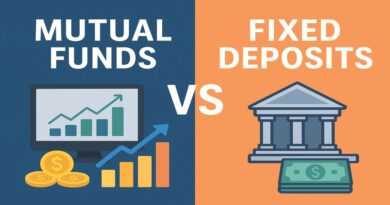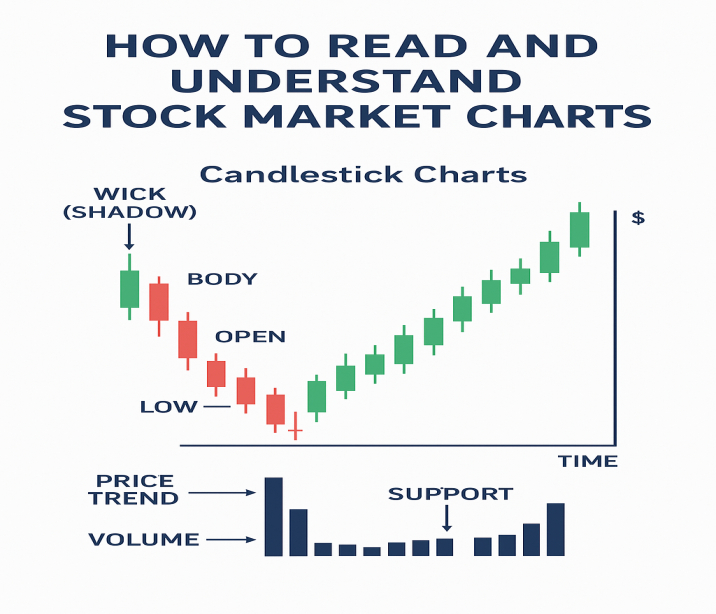What is Inflation? How it affects your Money in Daily Life
Understand What is Inflation, how it reduces the value of money over time, why prices rise and smart ways to protect your savings from inflation effectively.
What is Inflation? How it Affects Your Money
Have you ever wondered why things that cost ₹10 years ago now cost ₹30 or more? That’s inflation – the rise in prices of goods and services over time, which reduces the purchasing power of your money. In simple terms, inflation means your money buys less than before.
Table of Contents
Why Does Money Lose Value Over Time?
Let’s understand this with a simple example:
Imagine you had ₹100 in the year 2000. Back then, you could buy:
- 10 movie tickets at ₹10 each
But in 2025, if one movie ticket costs ₹200, you can buy only half a ticket with the same ₹100.
That’s because prices increase over time, but if your income or savings don’t increase at the same rate, you lose value.
This happens due to several reasons:
- Increased demand for goods and services
- Rising cost of raw materials or wages
- Higher taxes or fuel prices
- Supply chain disruptions or global events
Why Understanding Inflation is Essential for Financial Planning
Inflation silently affects everyday life by increasing the cost of essential goods and services while reducing the real value of money over time. If your income and savings do not grow faster than inflation, your purchasing power gradually declines. Understanding how inflation works helps you make smarter decisions about saving, investing, and spending, ensuring your money continues to support your lifestyle and long-term financial goals.
Real-Life effects of Inflation
- Reduced Buying Power:
₹500 today buys fewer groceries than it did five years ago. - Impact on Savings:
If your money is just sitting in a regular savings account earning 3–4%, but inflation is at 6%, you’re actually losing money in value. - Costlier Loans & EMIs:
To control rising inflation, the RBI might raise interest rates to make borrowing costlier and reduce spending. This makes loans, EMIs, and credit cards more expensive. - Budget Imbalance:
Families find it harder to manage monthly expenses, especially for food, education, and fuel. - Devaluation of Currency:
Inflation reduces the strength of a country’s currency. ₹100 today may have the same power as ₹70 after a few years.
Types of Inflation
- Creeping Inflation – Slow and steady rise (good for economy)
- Walking Inflation – Moderate rise (can cause concern)
- Galloping Inflation – Prices rise very fast (dangerous)
- Hyperinflation – Prices skyrocket daily (very rare, e.g., Zimbabwe)
How to Protect Your Money from Inflation
- Invest Wisely
Put money in inflation-beating instruments like:- Mutual Funds
- Stocks
- Gold
- Real Estate
- Avoid Holding Too Much Cash
Cash loses value. Park funds in interest-earning or growth-generating assets. - Increase Income Sources
Side income, freelancing, or learning new skills can help beat rising costs. - Track Inflation Rate
Stay updated with India’s inflation rate, often published monthly by the RBI and Ministry of Statistics.
Also Read: What is Interest Rate? Simple Interest vs Compound Interest Explained with easy ₹1000 example
How Inflation Impacts Different People
Inflation doesn’t affect everyone equally. For salaried employees, rising prices can reduce real income if wages don’t keep up. Retired individuals relying on fixed pensions suffer the most, as their income stays the same while expenses grow.
On the other hand, business owners and investors may benefit if their assets or products appreciate faster than inflation. Thus, understanding inflation helps individuals make better financial choices suited to their situation.
Government’s Role in Controlling Inflation
The government and the Reserve Bank of India (RBI) use several tools to manage inflation. The RBI adjusts interest rates through monetary policy to either encourage or reduce spending. When inflation is high, it increases rates to control demand; when inflation is low, it cuts rates to boost growth.
Fiscal measures, such as controlling taxes and subsidies, also play a part. Effective management ensures price stability, protects consumers, and keeps the economy balanced.
Summary
Inflation is a natural part of the economy, but if you don’t understand or prepare for it, your hard-earned money will lose value over time. By making smart investment decisions and avoiding idle cash, you can safeguard your financial future against inflation.
Also Check: Finance
![]()




